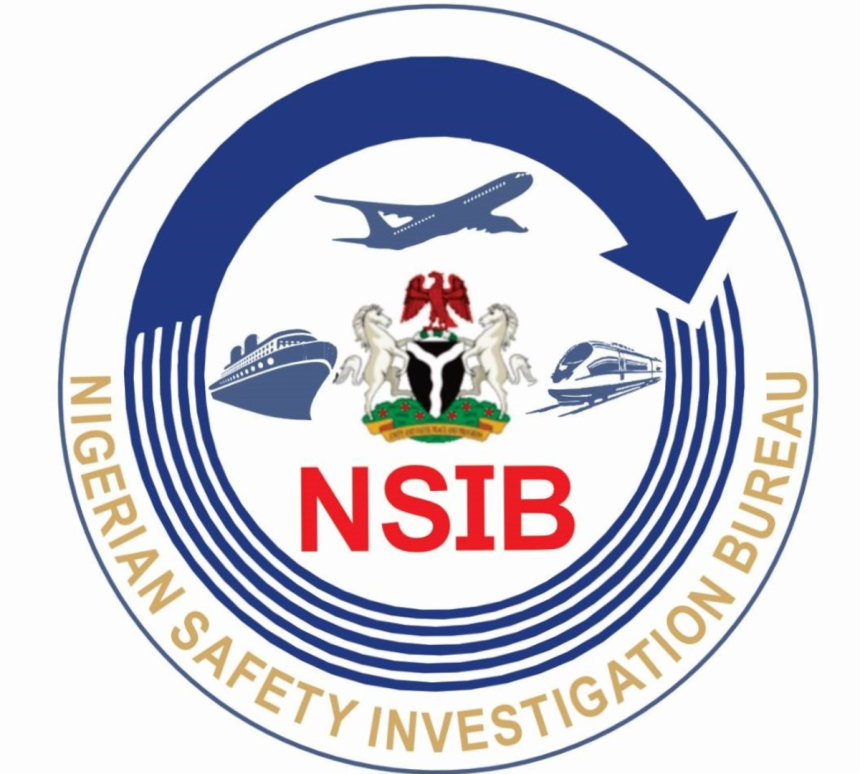…..as NSIB targets independent investigation in railway, maritime sectors
The Nigerian Safety Investigation Bureau (NSIB) disclosed on Wednesday that the agency is set to be included in the Falcon Eye operations of the Nigerian Navy, assisting its efforts in ensuring timely accident investigation operations in Nigeria’s maritime industry.
Disclosing this during a virtual media briefing with aviation and maritime Correspondents, the Director General of NSIB, Captain Alex Badeh Junior, explained that the agency’s role in the maritime and railway sectors will be solely independent investigations as stated in the 2022 NSIB Amendment Act.
Badeh said, “The Maritime Safety Investigation Regulation seeks to streamline investigations into maritime accidents and incidents, and this helps us promote transparency, accountability, and also improve our safety protocols here in our waterways and our ports in Nigeria.
“It aligns with international standards from the International Maritime Organisation (IMO), and this includes the Casualty Investigation Code, and which incorporates elements of the United Nations Convention on the Law of the Sea (UNCLOS). These regulations are designed to ensure that we comply with all these provisions, and it aims to standardise marine safety investigations in Nigeria.
“Of course, there are mechanisms for amendments to reflect evolving standards and change the national needs as we move forward, and we call it a draft because we’re waiting for the rest of the stakeholders to put their input.”
On response from maritime and rail based agencies in Nigeria, the NSIB DG stated that, “We have already met with the Nigerian Railway Corporation (NRC), the National Inland Waterways Authority (NIWA) and the Nigerian Navy and they have all agreed to partner with the NSIB towards an independent investigation operations in the rail, maritime and inland waterways sectors.
“Our roles in these sectors will be mainly independent investigation. We won’t be involved in sanctions on errant operators after the investigation exercises. Once we conclude the investigation on any incident in these sectors, we will hand over our report to the regulatory agencies mandated by international regulations to sanction, for them to handle the punitive aspect of our findings.”
On how the agency hopes to get information on accident-related issues in the maritime industry, the NSIB DG stated that, “The Nigerian Navy has agreed to bring us on board the Falcon Eye operation, a maritime security and surveillance network that monitors Nigeria’s vast coastline and Exclusive Economic Zone.
“With the Navy’s Falcon Eye, we will be able to detect, track, and respond to accident issues within the Nigerian maritime sector swiftly.”
On railway regulation in Lagos, the NSIB DG explained that the agency already has an understanding with the Nigerian Railway Corporation (NRC) and will be meeting with the Lagos State government on a partnership concerning existing rail services like the Red Line and Blue Line, including future rail operations under the State government.
On the preparedness of NSIB staff to handle the expanded responsibilities, Alex Badeh junior stated that, “We will be training our staff on the new roles they will be taking as the 2022 NSIB Amendment Act is being finalised.
“In aviation, what we will be doing is just an upgrade to what we are currently doing. For the maritime and railway sectors, our workers will undergo training to learn the fundamentals of their expanded responsibilities.
‘We will also be bringing in equipment to aid us in carrying out our roles in the maritime and railway sectors,” the NSIB DG stated.
ALSO READ TOP STORIES FROM NIGERIAN TRIBUNE
WATCH TOP VIDEOS FROM NIGERIAN TRIBUNE TV
- Let’s Talk About SELF-AWARENESS
- Is Your Confidence Mistaken for Pride? Let’s talk about it
- Is Etiquette About Perfection…Or Just Not Being Rude?
- Top Psychologist Reveal 3 Signs You’re Struggling With Imposter Syndrome
- Do You Pick Up Work-Related Calls at Midnight or Never? Let’s Talk About Boundaries






